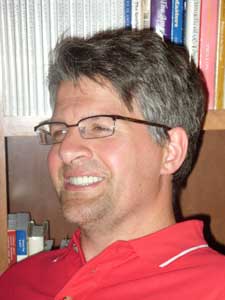Education that spans generations:
Peter Carmichael takes the helm of Gettysburg College’s Civil War Institute, Gabor Boritt’s innovative program for history students of all ages
 What attracted you to the Civil War Institute?
What attracted you to the Civil War Institute?
What Gettysburg College offers is an unparalleled platform to not only connect with students, and to train them to become historians, but to also reach a wide range of people. For the majority of Americans, the Civil War is Gettysburg. That is their entry point. So to have an opportunity to be able to connect with exceptional students and at the same time reach a broader audience who associate the Civil War exclusively with Gettysburg… our goal is to get them to see that Gettysburg is a portal to a number of other issues they can explore.
What do you hope to accomplish during your tenure?
We’re building upon a legacy established by Gabor Boritt, who did things nobody was thinking about. He was reaching students, high school teachers as well as the general public. I think we’ll also move in other areas Gabor had some advancement in: Making this a place where public historians, teachers, high school students, college students and academics can come together and engage in the important historical debates about the Civil War and start to open up a conversation about how we communicate these ideas to the general public. Because what is troubling is the majority of Americans find history in general somewhat irrelevant.
Does succeeding Gabor Boritt set high expectations for you?
Following in Gabor’s footsteps is intimidating; it’s humbling to have this legacy. But what’s comforting is that this is a collective effort. I have an amazing staff here at CWI, but more importantly I have a college, I have devoted attendees at the institute, who believe in the mission of CWI and what Gabor articulated so long ago. This is a life-dream for me. And then when the euphoria sort of wears off you think, “Good Lord! This is quite a responsibility to carry on this mantle.” But I can’t say enough about Gettysburg College’s commitment to this institute. Gabor has repeatedly told me, “Make this your own.” Which is great.
What are you most looking forward to in your new role?
What I’m really excited about is we’re going to create a more intimate learning environment. We have roughly 250 to 300 people a year who attend the institute. And it can feel like a big lecture hall. So we’re going to create workshops in which the attendees are broken down into classes of 30 to 40; they will rotate among three or four scholars. It’s what I’d call speed dating with historians. All of that will prepare them for the afternoon fieldwork, which will either be here at Gettysburg or another historical site. It’s intended ultimately to put the participants in the position where they are their own historians.
How do you interest a tech-savvy generation in history?
Often our throwing technology at young people re-creates the very traditional relationship of there being an authority figure who is the guardian of knowledge and who dispenses that knowledge to young people. The key is first touching the imagination of students. If you can create opportunities for young people to do research on their own families, you will start to get them to see how these small personal stories connect to big narratives.
Another thing is every young person lives off a hand-held device. I want them to be able to come to a historical site, take out that device and engage in a scavenger hunt of history.
Article originally published in November 2010 America’s Civil War.




